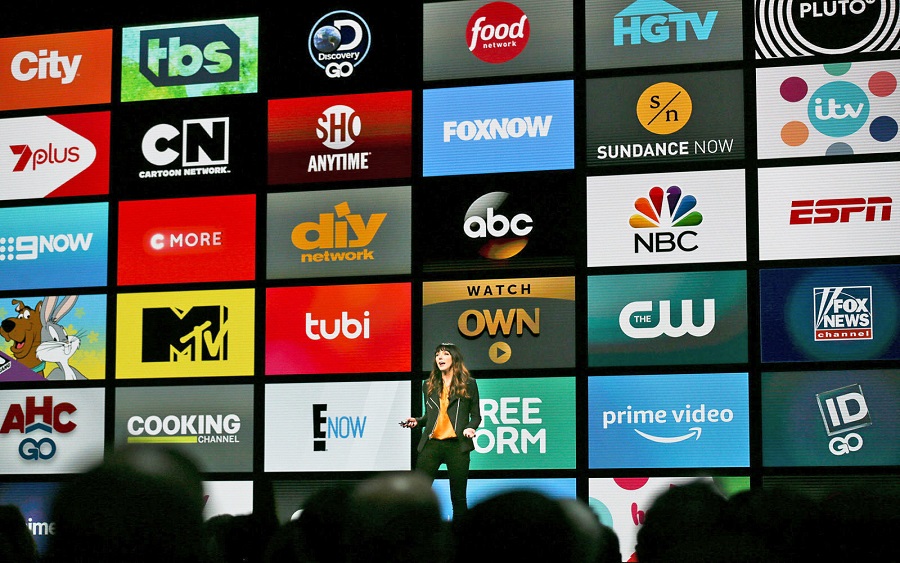The daily globalization of our planet has changed most aspects of our social existence. It has even changed the way we consume music. The digitalization brought by the internet has introduced music streaming platforms where individuals can get to listen to their favourite artists without going to the store to purchase physical CD copies that may be pirated copies of the hard work and sweat of the artists.
It presents the option of artist to directly engage with the audience without having to go through a somewhat tedious squabble with promoters or record labels. We all know about Spotify, Tidal, Apple Music, Shazam and the rest, but do we also know about the African focused players like Boomplay, Spinlet and MTN music.
[READ ALSO: The Nigerian Afrobeats Music Industry Gains Global Momentum]
Local music streaming services have become a focal point for growth in the Nigerian music industry. Boomplay, for example, has expanded all across the African continent since its establishment in 2015. According to Techpoint, the streaming platform has about 42 million active users mainly from Nigeria, Kenya, Ghana and Tanzania. Spinlet is also a renowned service that is popular in Nigeria. The platform also holds the title for being the first music streaming service to be established in Sub-Saharan Africa.
Currently, streaming services like Boomplay have raised $20 million in Outside funding as they continue to advance into more Sub-Saharan countries. According to TechCrunch, the company, which is owned by Transnet, a joint venture between two Chinese companies, Transsion and Netease, received funding from Chinese investors Maison Capital, Seas Capital and other unrevealed investors. Phil Choi, the head of international partnerships, reported that the streaming platform has raised a total of $25.5 million till date.
The positives brought by streaming services cannot overshadow the negatives that these music streaming platforms face in Africa, especially the Nigerian environment.
According to Michael Ugwu, Sony GM for the West African region, 80%-90% of digital streaming comes mainly from smartphone users. The Jumia mobile report for 2019 reports that Nigeria had over 36 million smartphone users, representing a penetration rate of 18.37%. In addition to a low penetration rate for smartphones, Ugwu also says that the high cost of data adds as a challenge to the digital streaming market in Nigeria.
The high cost of data also underscores another problem in Nigeria which is the lack of internet access, especially in rural areas. According to the business insider by Pulse NG, there are about 98.39 million internet users in 2019. This number represents a 4 million increase compared to the statin 2018; however, the overall internet penetration rate in Nigeria remains relatively low, with only 50% of the population that has access to the internet. A fewer number have access to high-speed internet.
Apart from the basic infrastructural challenges, critiques like Reggie, an upcoming Nigerian artist, has argued that singers do not earn a lot of money on local streaming platforms. This is why a lot of Nigerian artists look towards international platforms like Apple Music and Spotify because of their well set up standard structure.
A similar report was echoed on Pulse NG. According to the music blog site, it reported that local streaming platforms like Boomplay, MTN music plus and 9 mobile’s cloud 9 split revenues 50-50 with the distribution companies, who then share a very minute percentage to the recording artist.
Finally, streaming platforms grapple with adequate branding and presentation of their services. According to filterfree.ng, users of MTN music+ report that the service has a number of flaws that range from the clumsiness of design to poor audio quality of music. Spinlet users also concurred with the same problem of poor audio quality on the platform. They further state that the service has a problem of infrequent technology updates and upgrades.
[READ ALSO: Online streaming site Netflix acquires Kunle Afolayan’s movie, ‘Mokalik’]
Local streaming services in Nigeria have definitely brought an impact on the country. It represents how Nigerians have capitalized on the changing forms of technology; however, in order for local streaming services to compete with the foreign players, the Nigerian government must do its best to ensure internet access to the people. This could be done with fixing the never-ending electricity situation in the country and having a conversation with telecom companies to reduce the cost of data.
In addition, local streaming platforms need to present services better to people by uploading songs with good audio quality and also by reworking the design on the apps in order to make navigation possible for users. Perhaps the streaming platforms should also consider a review on the percentage given to the artists.
Nigeria is on the right track with streaming, we just need to make a few minor changes to fully grasp and enjoy the dividends of online music streaming.
Paul Olele Jnr writes from Washington DC. He is a 2019 graduate of George Washington University and currently works as graduate Media and Research Intern at the Initiative for Global Development.
